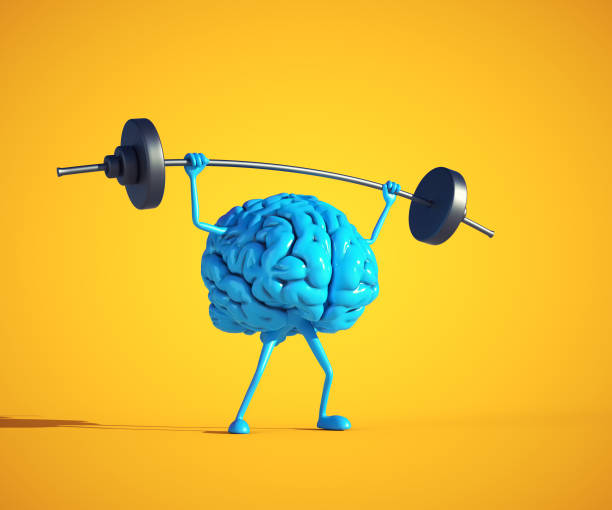
Beginning the day with quiet reflection improves focus and mood. Just five minutes of intentional breathing can help center the mind before daily demands take over your thoughts.
Practicing gratitude each morning enhances perspective. Jotting down three things you’re thankful for increases positivity and reduces stress throughout the day by shifting attention from worry to appreciation.
Mindful mornings can also include light stretching. Moving the body gently helps release tension stored overnight and prepares both mind and muscles for a peaceful and productive day.
Try to wake up 15 minutes earlier than usual. A calm start prevents the usual morning rush that often fuels anxiety and leaves little space for clear thinking.
Daily physical activity boosts endorphins and lowers stress hormones. Whether walking, jogging, or dancing, consistent movement improves mood and mental clarity naturally.
Choose exercises you enjoy. Stress melts away faster when the body is engaged in something pleasant. This makes it more likely you’ll keep the habit going long-term.
Short workouts still count. Even a ten-minute stretch or walk helps release stress. Consistency, not intensity, is the key to staying mentally and physically fit.
Exercise outdoors when possible. Nature adds an extra calming effect, helping reduce blood pressure and improve feelings of well-being within minutes of exposure.
Excess screen time overwhelms the brain. Constant notifications and information can trigger stress responses and make it harder to stay focused and calm.
Set boundaries with devices. Allocate specific times for checking emails or social media. This creates mental space and reduces the clutter that distracts and drains energy.
Use tech-free zones like the bedroom or dining table. These physical boundaries help reset the brain and improve rest, relationships, and overall well-being.
Engage in offline hobbies. Drawing, reading, or gardening quiets the mind and helps you feel present. This counters the anxious energy triggered by digital overload.
Controlled breathing helps reset the nervous system. Deep, slow breaths signal safety to the brain, calming stress responses and inviting relaxation into the body.
Try box breathing: inhale for four counts, hold, exhale for four, then hold again. This method restores calm quickly and is easy to practice anywhere.
Focus only on the breath during this time. Notice how your body feels with each inhale and exhale. This anchors attention and prevents the mind from spiraling.
Use breathwork before high-stress moments. Deep breathing before meetings or tasks can prevent overwhelm and improve performance under pressure.
Writing thoughts down clears mental fog. Journaling helps express emotions constructively, allowing the brain to process worries and let go of intrusive thoughts.
Make it a daily habit. Consistency creates space for clarity. Use prompts like “What am I feeling?” or “What’s weighing on my mind?” to guide your writing.
Don`t judge what you write. The goal is expression, not perfection. Letting thoughts flow freely can unlock insights and offer relief from internal stress.
Even five minutes of journaling daily builds self-awareness. This small habit can uncover patterns, triggers, and even new solutions to challenges.
Lack of sleep worsens stress. A tired brain is more reactive, less focused, and prone to anxiety. Prioritize 7-9 hours of quality rest every night.
Establish a consistent bedtime. Going to bed and waking up at the same time stabilizes your internal clock, promoting deeper, uninterrupted sleep cycles.
Create a calming sleep routine. Wind down with reading, gentle music, or meditation. This signals the brain to shift into rest mode and reduces mental overstimulation.
Limit screens before bed. The blue light disrupts melatonin, making it harder to fall asleep. Replace scrolling with calming rituals to ease your body into sleep.
What you eat affects how you feel. Nutrient-dense foods like leafy greens, berries, nuts, and omega-rich fish help balance mood and support brain health.
Avoid excess sugar and caffeine. These can spike energy but cause crashes that increase irritability and anxiety. Choose steady energy sources like whole grains and proteins.
Stay hydrated. Even mild dehydration can impact mood and cognition. Drinking enough water each day is an overlooked but powerful stress reducer.
Eat mindfully. Slow down during meals and savor your food. This helps with digestion and reinforces a connection to the present moment.
Supportive relationships buffer stress. Connecting with kind, trustworthy people creates a sense of belonging and boosts emotional resilience through tough times.
Make time for meaningful conversations. Sharing your thoughts and listening deeply to others strengthens bonds and releases emotional pressure naturally.
Limit time with toxic influences. Negative environments and relationships increase stress. Protecting your peace is a crucial part of mental fitness.
Join groups or communities with shared interests. Feeling part of something bigger contributes to mental stability and can uplift your mood quickly.
Poor planning creates chaos. Managing your time thoughtfully reduces stress by giving structure and making room for the things that truly matter to you.
Use a planner or digital calendar. Writing down tasks gives clarity and helps prioritize. Breaking large tasks into smaller steps prevents overwhelm.
Block time for rest and self-care. These are just as essential as work. Scheduling downtime ensures you don’t neglect your mental well-being.
Avoid multitasking. It may seem efficient, but it often leads to mistakes and stress. Focus on one task at a time to stay present and productive.
Gratitude rewires the brain. Noticing the good in your life shifts focus away from fear or lack and strengthens feelings of contentment and hope.
Start or end the day with gratitude journaling. List three things you appreciate. Big or small, these moments build emotional strength and reduce negativity.
Share your gratitude with others. Thanking people for their impact fosters connection and multiplies the mental health benefits for both of you.
Practice mindful appreciation during daily moments. Enjoy a warm cup of tea or sunlight on your skin. Small joys create a peaceful, grounded mindset.
Meditation doesn’t need to be long. Even short sessions help. Five minutes of sitting still with eyes closed can reset your mind and bring calm quickly.
Use guided meditations to start. Many apps offer free sessions that walk you through breathing and visualizations. This lowers the barrier to entry for beginners.
Focus on physical sensations. Notice your breath, heartbeat, or the feeling of your feet on the ground. This keeps you present and away from racing thoughts.
Practice throughout the day. Try meditating before lunch, after work, or during breaks. Frequent short sessions build a habit that supports long-term peace of mind.
Being kind to yourself matters. Harsh self-talk increases stress and erodes confidence. Replace criticism with understanding and gentle encouragement whenever possible.
Notice your inner dialogue. If it’s negative, pause and reframe. Speak to yourself as you would a dear friend—this helps break cycles of shame and anxiety.
Acknowledge effort, not just outcomes. Celebrate progress and resilience. This shifts focus from perfection to growth, which reduces pressure and promotes emotional balance.
Create space for rest and forgiveness. Mistakes happen, and off-days are natural. Compassion reminds us that healing and progress come in waves.
I'm a blogger and writer for different websites, where I share engaging content on a variety of topics from lifestyle and culture to travel and trends. Passionate about storytelling and connecting with readers, I aim to inspire, inform, and entertain through every post.






